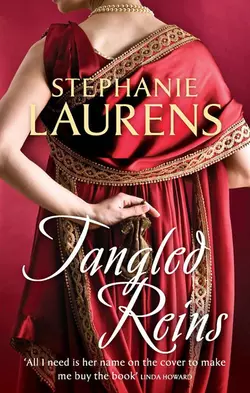Tangled Reins

Stephanie Laurens
Тип: электронная книга
Жанр: Современная зарубежная литература
Язык: на английском языке
Стоимость: 309.44 ₽
Статус: В продаже
Издательство: HarperCollins
Дата публикации: 16.04.2024
Отзывы: Пока нет Добавить отзыв
О книге: From the sparkling ballrooms of Regency London to the wealthy glamour of the country house – let Stephanie Laurens be your guide!Content with her humdrum country life, Miss Dorothea Darent had no intention of marrying. She knew that her unfashionable curves and her outspoken ways made her a disastrous match for any gentleman of the ton. But one kiss from a dashing stranger changed everything. Gossips said that the scandalous Marquis of Hazelmere would never choose a bride. But when he encountered Dorothea, he was entranced.He didn’t expect Dorothea’s unconventional sweetness and charm to take the glittering world of the Regency by storm. The lady was surrounded by suitors – and now the confirmed rake must fight for his beautiful prize!“Laurens’ writing shines” Publishers Weekly